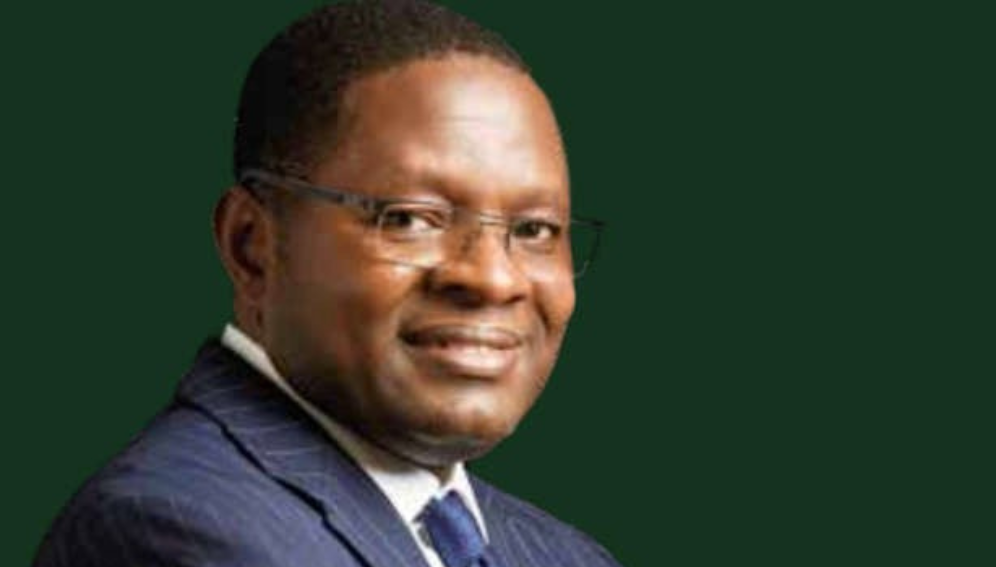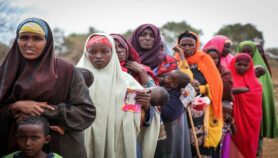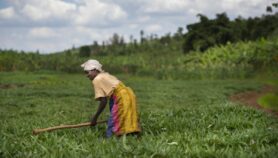By: Jackie Opara
Send to a friend
The details you provide on this page will not be used to send unsolicited email, and will not be sold to a 3rd party. See privacy policy.
[LAGOS] Climate change impacts are increasing in frequency and severity, with numerous consequences for people’s quality of life, particularly in Sub-Saharan Africa.
Several development partners have been supporting the implementation of initiatives to bolster climate resilience.
Kevin Urama, Africa Development Bank’s acting chief economist and vice-president, tells SciDev.Net about the continent’s emerging challenges and opportunities in climate change, and why it is crucial to focus on adopting climate-smart policies in Africa.
To what extent is climate change threatening economies in Africa?
Climate change is one of the most existential threats to countries’ businesses, families and livelihoods.
Our research shows that the gross domestic product (GDP)of countries in Africa is suffering because of climate change. For example, climate change impacts are already causing African countries to lose between five and 15 per cent of GDP per capita growth annually. The GDP of countries has direct relationships with the livelihoods, the ability of countries to be able to have the money, the financial resources that they require to build roads, to pay for schools, hospitals, social security systems, and so many things that governments need the money for.
Whenever there is a climate event, people suffer, and livelihoods, livestock and infrastructure are destroyed. It’s a vicious cycle because it means that the governments will have to look for meagre resources that they are struggling with from a limited fiscal space to rebuild infrastructure they already built. It is like setting the clock backwards each time these severe weather events happen.
In Africa. it is worse because of the lack of capacity to adapt. It is imperative for African countries to quickly move towards adopting climate-smart policies, technologies, and development programmes.
“Some countries are great at creating more emissions and because of that, the whole world is suffering.”
Kevin Urama, Africa Development Bank
How can climate-smart policies solve climate problems including climate injustice?
We always think that climate-smart policies are about switching from coal to renewable energy, which is climate-friendly. However, I view climate-smart policies to be regulations and laws that when implemented juxtapose development and social equity so you keep people happy, people get their needs, and address their social welfare.
Climate-smart policies help to address climate change while ensuring economic growth and social equity.
For climate justice, we look at three different aspects of justice. They are moral justice, distributive justice and criminal justice. Moral justice is for example, say in a developed country, they have a moral responsibility to pay for internalising the externality caused by their forefathers. These impacts have happened already and are not caused by the current generation. There is a moral imperative that the current generation support their neighbours. Distributive justice is the fact that the causes of climate change vary from country to country.
Some countries are great at creating more emissions and because of that, the whole world is suffering. Some countries are creating fewer emissions, and they are suffering more because they lack economic growth benefits and they do not have access to technologies and systems that protect them from climate impacts when they do happen. This is where distributive justice comes in. With criminal justice, people deliberately engage in activities that create problems for others.
How can Africa adopt climate-smart policies for sustainable development?
We are in the Fourth Industrial Revolution where technology is driving change. Climate-smart policies for me will be that African countries will assess building capacities on the continent to produce sustainable technologies.
“It is imperative for African countries to quickly move towards adopting climate-smart policies, technologies, and development programmes.”
Kevin Urama, Africa Development Bank
We need to be able to start producing those technologies, whether it is a solar panel. It is a win-win for the environment, economic growth, and for society. For example, if we get companies to come on-site in the Congo, where there are battery minerals, or in Zambia, where cobalt exists, we can reduce the carbon footprint of the end products. A carbon footprint is the total amount of greenhouse gas emissions resulting from actions of individuals, events or institutions.
The current model is that industries mine raw materials such as copper, and the carbon footprint of that product becomes high. Thus, if we site those industries where the raw materials are, we can reduce that carbon footprint while also reducing the cost of production because the raw material input costs go down. This is good for the investor. It also creates opportunities for jobs for local people.
There are different tools that African governments can use. One such tool is what I call franchising policy. African governments can enter into agreements with these big companies and decide not to sell raw materials to these companies. Instead, African governments can give incentives to big companies to build their industries in Africa.
African governments can also strengthen local content policies. In this case, they can require companies to upgrade their products to a certain level before they can export such products. It does not cost us anything but just political will. That’s what I call smart policies.
I also urge the global community to honour the Paris Climate Agreement. The agreement reached included increased technology transfer, knowledge sharing, and financial flows in terms of climate finance.
What are the challenges and opportunities for adopting climate-smart policies for sustainable development in Africa?
The current global financial architecture does not encourage the flow of capital to areas where it is most needed. This means that climate finance hardly flows to areas such as African countries where climate vulnerabilities are high.
Another challenge is that African governments are elected officials and are elected because of short-term tenures of four years or five years renewable, maybe once. But climate change problems are long-term issues. Most of these countries are under pressure from their citizens to do something visible so that they can be re-elected. This means that we prefer the money we get today instead of getting that same money tomorrow. That is why countries would rather export raw materials to get immediate cash to do social programmes so that citizens can see that they are doing a good job.
We need mobilisations of the citizenry. This will make sure the citizens understand what is at stake, what can be expected in the short-term and the need to patiently wait because development transitions take time.
Africa needs some patience in terms of allowing the policies being put in place by leaders to mature and then be able to yield benefits. We need to also think about investing in building that capacity to understand how the new climate-smart economies will work and play the game before it is too late.
This interview has been edited for clarity and brevity.
This piece was produced by SciDev.Net’s Sub-Saharan Africa English desk.














